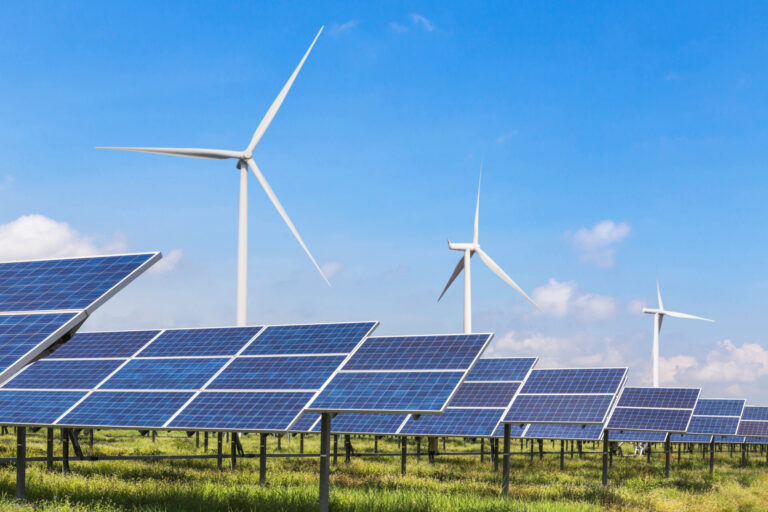In June 2025, Chancellor Rachel Reeves announced a £14.2 billion public investment in the Sizewell C nuclear power station. This...
Read More- Energy Insights
The Truth Behind Smart Meters: Debunking Popular Misconceptions
-
 Kate McCann
Kate McCann
- 3 minute read
REGO Market in 2025: A Turning Point for UK Renewable Certification
The REGO Reckoning In the UK’s journey towards net zero, Renewable Energy Guarantees of Origin (REGOs) have long served as...
Read MoreUK Oil and Gas: Rising Import Dependence and Market Pressures
Two significant developments in the UK’s energy sector illustrate the evolving landscape: a predicted sharp rise in oil and gas...
Read MoreThe concept of smart meters promises an era of efficient energy management, yet many people are still reluctant to incorporate them in their businesses due to the many myths and misconceptions which surround them.
Let’s dispel the misconceptions surrounding smart meters and unveil their true potential for optimising your energy costs.
Some of the Most Common Smart Meter Misconceptions are:
-
Smart Meters Steal your Data:
Privacy remains paramount. Smart meters meticulously measure energy consumption, not personal data. Robust encryption safeguards your information, ensuring it is always secure.
-
They can be Easily Hacked:
Unauthorised access is highly unlikely, there are rigorous cybersecurity measures in place and smart meters meet high standards.
-
Smart Meters are Expensive to Install:
Smart meters are free to install to your business as the supplier will cover the costs of installation.
-
Smart Meters Increase Energy Bills:
Accurate monitoring helps you save and identify energy-efficient practices, usually leading to cost savings in the long run.
-
Smart Meters are Prone to Malfunctions:
Stringent testing ensures reliability. Any issues are quickly detected and addressed by utilities and are usually a simple fix - all technology is prone to some faults from time to time.
Smart meters can offer more tailored tariffs and subsequent monitoring of them enables organisations to pinpoint areas for savings and measure the impact of efficiency initiatives, make data-driven choices about energy usage and procurement, and support eco-friendly .
They also solve the common issue of estimated bills, increasing accuracy and ultimately leading to the potential of saving time and costs. For example, if you don’t have a smart meter then you must manually input your meter readings, whereas a smart meter does this for you automatically, ensuring you’re only paying for the energy that you use.
Businesses are also able to become more energy efficient through identifying and tracking usage in peak times, giving insight, and thus helping to determine the best approach for energy strategy. This often enables businesses to reduce emissions as well as costs. Most suppliers will also allow you to check your previous consumption so that you can manage your energy usage in the long-run.

Smart meter data is often accessed by your energy supplier to ensure accurate billing; however, you do ultimately have a choice in how your data is used and you can choose whether to give third parties permission to use your data. This could be used to offer you alternative products and services they deem beneficial. This could explain the myth that companies are stealing your data, however supplier and third parties simply request it to benefit you further.
Potential cost savings from avoiding estimated bills – if you don’t have a smart meter you have to manually put in the your meter reads whereas a smart meter does this for you so you’re only paying for the energy that you use.
Can also help businesses become more energy efficient – helps to identify peak usage times giving businesses insight into their usage and how they can best approach their energy strategy
Can track usage better aiding energy efficiency – easier to implement sustainable practices and energy efficiency measures when you’re measuring the energy that you use.
Property Management Companies
Smart meters are beneficial for property management companies as they offer remote monitoring and real-time data on energy and water usage. This capability allows property managers to efficiently oversee utility consumption without the need for physical inspections, leading to quicker identification and resolution of issues such as leaks or excessive consumption.
The precise data provided by smart meters supports accurate billing, reducing disputes and enhancing transparency in billing processes. Additionally, the insight into energy usage patterns enables property managers to implement energy-saving measures, contributing to overall cost savings for both the property and tenants. Automated notifications, tenant engagement through access to consumption data, and improved maintenance planning further streamline operations, making smart meters valuable tools for optimising resource management and enhancing the efficiency of property management companies.
Overall, smart meters can be extremely useful for organisations to keep costs low, monitor your usage and identify energy efficient practices, saving more long-term. At BP Consulting, we can help you with all of your smart meter needs.
Some of our other metering services include:
-
Sub-metering
Monitor energy use in specific areas of your building.
-
AMR Upgrades
Automate meter readings for accurate billing and data collection
-
Increasing or Decreasing Capacity
Ensure you have the right meter capacity for your needs.
-
New Connections and Temporary Solutions
Manage meter installations with minimal disruption.
-
Meter Repairs and Removals
Handle repairs and removals efficiently.
If you want to learn more about smart metre installations and which would best suit your business, contact us today using one of the buttons below.




